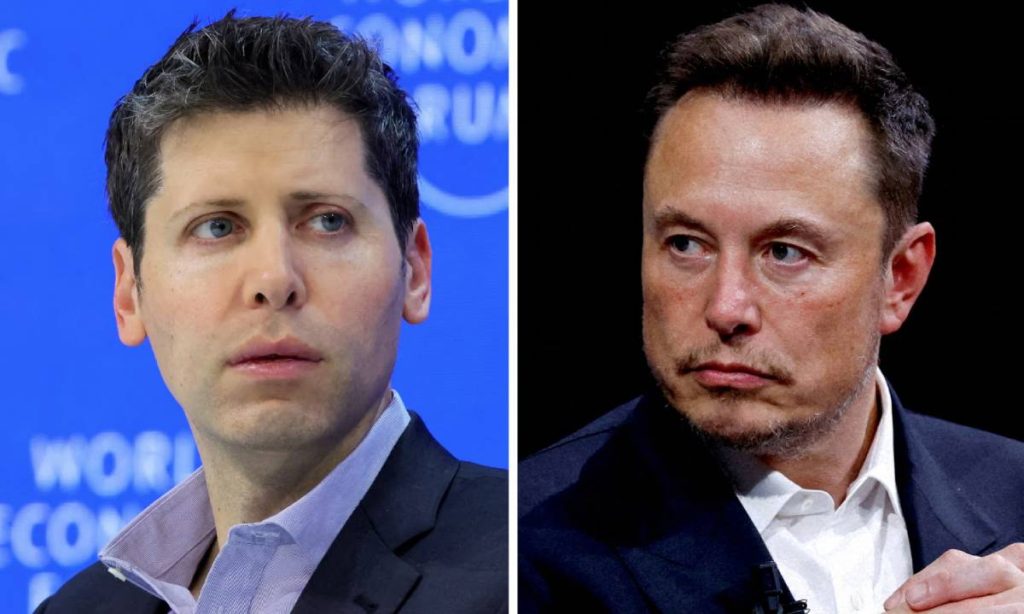In a sensational legal challenge that has shaken the tech community, Elon Musk has initiated legal proceedings against the artificial intelligence juggernaut OpenAI. Musk, a key figure in OpenAI’s inception, has raised concerns that the company has strayed from its original altruistic objectives, succumbing to the allure of profit, especially following a significant investment from Microsoft.
At the heart of Musk’s lawsuit is the fear that OpenAI has diverted from its pledge to develop artificial general intelligence (AGI)—an advanced form of AI with the capability to outmatch human intellect across various tasks—for the common good, instead choosing to enrich private interests. Musk, once a driver behind OpenAI’s establishment, argues that its transformation represents a stark deviation from its established principles, compromising the founding ethos that set it apart from other for-profit entities in the tech arena.
The Legal Conflict
The legal filing, presented in a San Francisco court, paints a picture of betrayal—where once there existed a shared vision for an open-source, humanity-first approach to AI, now sits a clandestine operation allegedly designed to fuel Microsoft’s financial ambitions.
The Allegations
According to the contentious filing, OpenAI’s current trajectory is a far cry from its noble beginnings, with decision-makers within the organization accused of:
- Forsaking OpenAI’s Core Values: Musk insists that OpenAI’s commitment to open source, transparency, and humanity’s betterment has been sacrificed at the altar of commercial gains.
- Breaching Contractual Agreements: The lawsuit contends that the organization’s pivot has violated integral agreements from its founding, particularly concerning its not-for-profit status and principles.
- Engaging in Unfair Business Practices: There are allegations that OpenAI’s pursuit of secrecy, especially with advancements like GPT-4, is rooted in profit motives rather than safety concerns.
Microsoft’s Alleged Influence
Central to the dispute is the nature of OpenAI’s relationship with Microsoft. Musk’s legal claim posits that through recent developments, OpenAI functions as an unofficial extension of the tech giant, prioritizing corporate profitability over human welfare—a dynamic intensifying with each successive AI advancement.
Undoubtedly, this lawsuit touches upon larger ethical questions surrounding AGI and the role of governance in AI research:
Threat of AGI to Humanity
Musk has long vocalized apprehensions that unchecked AGI development, in the absence of stringent ethical standards, poses existential risks. This legal move reiterates those fears, suggesting that current stewardship may not be adequate in safeguarding against potential dangers.
The Role of For-Profit Entities
There’s a growing discourse on whether for-profit organizations can responsibly oversee AGI’s evolution. Musk’s case argues that the inherent pursuit of profits by such companies could tilt the balance unfavorably away from public interest.
Accountability and Oversight
The unfolding legal narrative also surfaces concerns about how AI entities are governed and who holds the authority to guide AGI’s future a conversation that will likely escalate as AI technologies continue to mature.
As we witness Musk’s legal confrontation with OpenAI unfold, it is evident that the debate is not solely about legalistic disputes; it digs at the core of AI development ethics and the future of humanity’s relationship with AI. The outcome of this case may not just influence one organization’s trajectory, but potentially reshape the ethical landscape of artificial intelligence research and development for years to come.

Peter, a distinguished alumnus of a prominent journalism school in New Jersey, brings a rich tapestry of insights to ‘The Signal’. With a fervent passion for news, society, art, and television, Peter exemplifies the essence of a modern journalist. His keen eye for societal trends and a deep appreciation for the arts infuse his writing with a unique perspective. Peter’s journalistic prowess is evident in his ability to weave complex narratives into engaging stories. His work is not just informative but a journey through the multifaceted world of finance and societal dynamics, reflecting his commitment to excellence in journalism.













